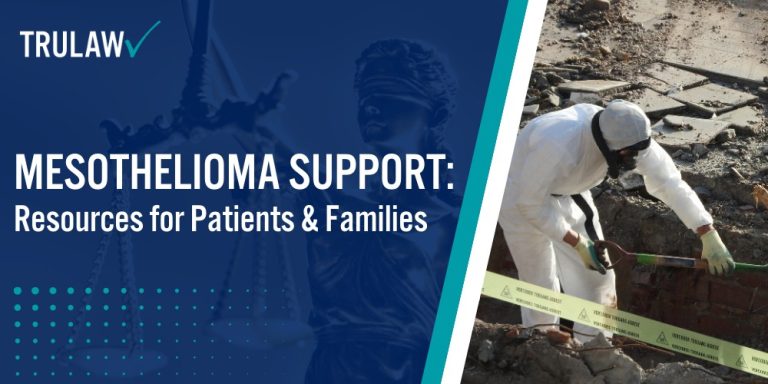Finding the right support during a mesothelioma diagnosis can make a significant difference for patients and their loved ones.
Various organizations offer tailored resources, emotional support, and opportunities to connect with others facing similar challenges.
From patient advocacy to caregiver support, these groups help ease the journey through mesothelioma treatment and recovery.
Mesothelioma Applied Research Foundation (Meso Foundation)
The Mesothelioma Applied Research Foundation (Meso Foundation) is a nonprofit organization dedicated to supporting mesothelioma patients, caregivers, and families.
It connects individuals with a network of survivors, researchers, and advocates to foster a supportive community and drive advancements in treatment.
Services offered by the Meso Foundation include:
- Online and telephonic support groups for patients and caregivers.
- Collaboration opportunities with researchers and physicians.
- Advocacy efforts for mesothelioma awareness and research funding.
- Educational resources to help patients navigate their diagnosis and treatment options.
By joining Meso Foundation’s support groups, patients can connect with others in similar circumstances and access advice from licensed professionals.
International Mesothelioma Interest Group (iMig)
The International Mesothelioma Interest Group (iMig) was established to promote research and collaboration among global mesothelioma experts.
The organization hosts biennial conferences to share advancements in mesothelioma diagnosis and treatment, benefiting both medical professionals and patients.
Services provided by iMig include:
- Hosting biennial conferences featuring cutting-edge research.
- Focusing on early diagnosis and innovative treatments.
- Providing a platform for international collaboration among doctors and researchers.
Patients benefit indirectly through the advancements in care resulting from iMig’s dedication to innovation in mesothelioma research.
American Cancer Society (ACS)
The American Cancer Society (ACS) offers a range of support programs tailored to cancer patients and their caregivers.
With a network of free resources and services, ACS ensures accessibility for those facing the emotional and logistical challenges of mesothelioma.
Services offered by the ACS include:
- Hope Lodge: Free lodging for patients traveling for treatment.
- Road to Recovery: Rides to and from medical appointments.
- Cancer Survivors Network: Peer-led support through online forums.
- Affordable wigs, scarves, and mastectomy products through the Tender Loving Care program.
Through its broad outreach and resource network, ACS provides essential support to mesothelioma patients and families across the United States.
Pacific Mesothelioma Center
The Pacific Mesothelioma Center is a nonprofit organization recognized for its innovative research into mesothelioma treatments.
Since its founding in 2012, the center has worked to improve patient outcomes through cutting-edge advancements and community engagement.
Services offered by the Pacific Mesothelioma Center include:
- Conducting groundbreaking research on mesothelioma treatments.
- Sponsoring the annual Walk for Mesothelioma fundraiser to support research efforts.
- Providing education and resources to patients and caregivers.
- Advocating for increased awareness of mesothelioma and its challenges.
The Pacific Mesothelioma Center has played a pivotal role in mesothelioma advocacy and research, with initiatives like its annual walk raising $580,000 in 2020 alone.
Canadian Mesothelioma Foundation
The Canadian Mesothelioma Foundation is a mostly volunteer-run charity dedicated to supporting mesothelioma patients and their families throughout Canada.
Since its establishment in 2008, the foundation has focused on raising awareness and improving care for mesothelioma patients.
Services offered by the Canadian Mesothelioma Foundation include:
- Raising awareness about mesothelioma across Canada.
- Connecting patients with specialized doctors and treatment options.
- Offering patient advocacy and support to navigate the healthcare system.
- Lobbying for improved asbestos-related policies to prevent future exposure.
Through its community-driven approach, the foundation unites patients, families, and healthcare professionals to create a stronger network of support.
National Cancer Information Center (NCIC)
The National Cancer Information Center (NCIC), operated by the American Cancer Society, provides 24/7 assistance to cancer patients, caregivers, and their families.
Its trained specialists offer guidance on resources and support options nationwide.
Services offered by the NCIC include:
- A 24/7 helpline staffed by trained cancer information specialists.
- Connecting patients and caregivers with local support groups and resources.
- Providing guidance on financial assistance and treatment options.
- Offering emotional support and information on coping strategies.
You can reach the NCIC by calling 1-800-227-2345 to access their comprehensive support network, ensuring help is always just a phone call away.



